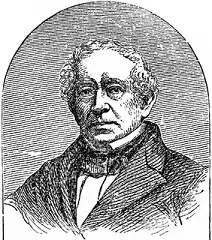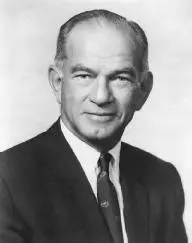US Leaders
Leaders and Statesmen
Throughout United States history, the country has had many leaders and statesmen who have helped shaped the nation into what it has become. These men and women fought for rights, blazed trails, and led citizens to a better future. Some of America’s most well known leaders include:
• Benjamin Franklin
• John Hancock
• John Marshall
• Edward Everett
• William Fulbright
• Nancy Reagan
• Condoleezza Rice

 Benjamin Franklin (1706-1790) has been called “The First American” due to his leadership during his country’s quest for independence. Franklin served as an author, politician, scientist, inventor, activist, musician, and many other roles. He was ahead of his peers in most fields; for example, as a scientist, he invented the lightning rod, bifocals, and a list of other useful items.
Benjamin Franklin (1706-1790) has been called “The First American” due to his leadership during his country’s quest for independence. Franklin served as an author, politician, scientist, inventor, activist, musician, and many other roles. He was ahead of his peers in most fields; for example, as a scientist, he invented the lightning rod, bifocals, and a list of other useful items.
Most importantly, Franklin fought tirelessly for the United States to become a free nation. He was elected as Pennsylvania’s delegate to the Second Continental Congress and then served on the Committee of Five as one of the five men to draft the country’s original Declaration of Independence..

 John Hancock (1737-1793) was also a member of the Second Continental Congress, actually serving as president. Hancock helped to lead the protests that led to the American Revolutionary War. One of the wealthiest colonists, he served twice as Governor of the Commonwealth of Massachusetts. He is most known, however, as the first man to sign the Declaration of Independence. In fact, Americans have adopted his name as a synonym for signature.
John Hancock (1737-1793) was also a member of the Second Continental Congress, actually serving as president. Hancock helped to lead the protests that led to the American Revolutionary War. One of the wealthiest colonists, he served twice as Governor of the Commonwealth of Massachusetts. He is most known, however, as the first man to sign the Declaration of Independence. In fact, Americans have adopted his name as a synonym for signature.

 John Marshall (1755-1835) was born in Virginia and served in the Continental Army during the American Revolutionary War. He studied law and entered politics before the war ended, quickly becoming a leader of his state’s Federalist Party.:
John Marshall (1755-1835) was born in Virginia and served in the Continental Army during the American Revolutionary War. He studied law and entered politics before the war ended, quickly becoming a leader of his state’s Federalist Party.:

In 1799 Marshall joined the United States House of Representatives, and then became the Secretary of State under President John Adams. Marshall eventually served as Chief Justice of the United States in addition to earning a spot on the Supreme Court. Overall he helped America to establish laws and stability during a crucial time in the nation’s history.

 Edward Everett (1794-1865) was a United States Representative, a Senator, and a Governor of Massachusetts. His most well known accomplishment is delivering a two-hour speech at Gettysburg in 1863 just before President Abraham Lincoln’s Gettysburg Address. At one point, Everett took a break from politics to serve as president of Harvard University. He was generous throughout his life, donating proceeds from public speaking to help those in need..
Edward Everett (1794-1865) was a United States Representative, a Senator, and a Governor of Massachusetts. His most well known accomplishment is delivering a two-hour speech at Gettysburg in 1863 just before President Abraham Lincoln’s Gettysburg Address. At one point, Everett took a break from politics to serve as president of Harvard University. He was generous throughout his life, donating proceeds from public speaking to help those in need..

 William Fulbright (1905-1995) was a U.S. Senator who helped create the United Nations. He served as chairman of the Senate Foreign Relations Committee and was known for his strong opposition to segregation and America’s role in the Vietnam War. As a Senator from Arkansas from 1945-1975, Fulbright helped to pass important Civil Rights Acts, changing race relations in the country at a very crucial time.
William Fulbright (1905-1995) was a U.S. Senator who helped create the United Nations. He served as chairman of the Senate Foreign Relations Committee and was known for his strong opposition to segregation and America’s role in the Vietnam War. As a Senator from Arkansas from 1945-1975, Fulbright helped to pass important Civil Rights Acts, changing race relations in the country at a very crucial time.
Fulbright’s legacy lives on due to the he Fulbright Program, which currently operates in more than 155 countries. The program began in 1946 and is sponsored by the U.S. Department of State’s Bureau of Educational and Cultural Affairs. The program allows education and ideas to be shared throughout all participating countries..

 Nancy Reagan (born in 1921) was married to Ronald Reagan, the 40th President of the United States. Originally a Hollywood actress in the 1940s and 1950s, Reagan created the “Just Say No” drug campaign during her time in the White House in the 1980s. She traveled throughout the country and the world to speak out against the dangers of drug abuse, sparking change and truly making an impact. As the nation’s First Lady, Reagan maintained high standards of elegance and fashion, proudly representing America.
Nancy Reagan (born in 1921) was married to Ronald Reagan, the 40th President of the United States. Originally a Hollywood actress in the 1940s and 1950s, Reagan created the “Just Say No” drug campaign during her time in the White House in the 1980s. She traveled throughout the country and the world to speak out against the dangers of drug abuse, sparking change and truly making an impact. As the nation’s First Lady, Reagan maintained high standards of elegance and fashion, proudly representing America.

 Condoleezza Rice (born in 1954) was the first African-American female to be the country’s Secretary of State, serving under President George W. Bush. Rice has been key to the nation’s security and was the National Security Advisor from 2001-2005. She has helped pave the way for both minorities and females to become leaders in their fields.
Condoleezza Rice (born in 1954) was the first African-American female to be the country’s Secretary of State, serving under President George W. Bush. Rice has been key to the nation’s security and was the National Security Advisor from 2001-2005. She has helped pave the way for both minorities and females to become leaders in their fields.



